Ondřej Dostál, through his work as a museum curator, has shared the story of Gregor Mendel’s life and work around the world.
Speaker Bios
Participants in the symposium include several of the world’s leading scholars, who will discuss the impact of Mendel’s work across many disciplines, from astronomy and apiculture to climate change and meteorology.
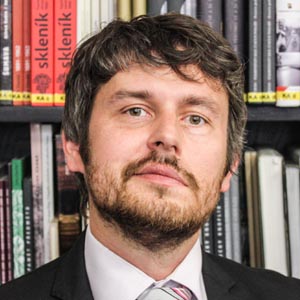
Ondřej Dostál, PhD, Director, Mendel Museum, Masaryk University, Brno, Czech Republic
The Director of the Mendel Museum since 2007, Dr. Dostal is the author of the museum’s permanent exhibition, G.J. Mendel—Man, Abbot and Scientist. He has created and collaborated on exhibitions and delivered lectures about Mendel at the museum and around the Czech Republic, as well as in Taiwan, Slovenia, Singapore, Brazil, and the United States. He is also the author of the celebration of the 150th anniversary of Mendel’s lectures this year, under the auspices of the Czech prime minister and The Royal Society, the world’s oldest scientific academy.
Dr. Dostal is second vice chairman of the Czech Association of Museums and Galleries and a member of the Czech Geological Society.
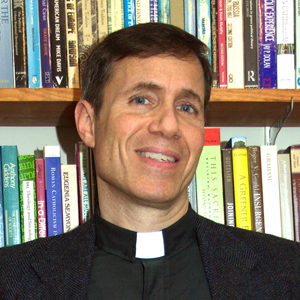
Michael Agliardo, SJ, PhD
Assistant Professor, Loyola University Chicago
Michael Agliardo is a Jesuit priest and sociologist on the faculty of Loyola University Chicago, where his teaching and research focuses on environmental sociology, the sociology of religion, and comparative sociology. He did his undergraduate work in history at Harvard, his theological studies at the Weston Jesuit School of theology, and his doctoral studies at the University of California – San Diego. Fr. Agliardo has written on the Catholic Church and its engagement with environmental issues in contemporary society, and currently he heads two studies, one researching the reception of Laudato Si’ in the U.S. and Canada, the other a multinational comparative study investigating the framing of Laudato Si’ and its intersection with issues in several key sectors of society. To assist with coordinating this multinational study, Fr. Agliardo has had research assistants working in the Philippines, India, Kenya, Poland and Ecuador. Fr. Agliardo also serves as a project consultant for the Catholic Climate Covenant. He also currently chairs the board of the U.S. Catholic China Bureau.
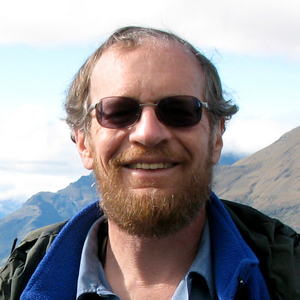
Richard Alley, PhD
Evan Pugh Professor of Geosciences, The Pennsylvania State University
Dr. Richard Alley (PhD 1987, Geology, Wisconsin) is Evan Pugh University Professor of Geosciences at Penn State. He studies the great ice sheets to help predict future changes in climate and sea level, and has conducted three field seasons in Antarctica, eight in Greenland, and three in Alaska. He has been honored for research (including election to the US National Academy of Sciences and the Royal Society), teaching, and service. Dr. Alley participated in the UN Intergovernmental Panel on Climate Change (co-recipient of the 2007 Nobel Peace Prize), and has provided requested advice to numerous government officials in multiple administrations including a US Vice President, the President's Science Advisor, and committees and individual members of the US Senate and House of Representatives. He has authored or coauthored over 270 refereed scientific papers. He was presenter for the PBS TV miniseries on climate and energy Earth: The Operators’ Manual, and author of the book. His popular account of climate change and ice cores, The Two-Mile Time Machine, was Phi Beta Kappa’s science book of the year. Dr. Alley is happily married with two grown daughters, two stay-at-home cats, a bicycle, and a pair of soccer cleats.
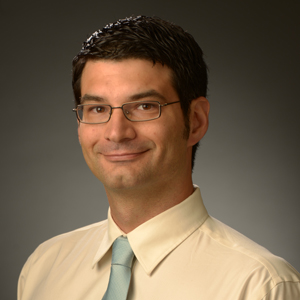
Daniel Castillo, PhD
Assistant Professor, Theology, Loyola University Maryland
Dr. Castillo’s expertise lies at the nexus of liberation theology and ecological theology. His work has been published in journals such as Political Theology and Scriptura. He has written extensively on Laudato Si' including the essay "Integral Ecology as a Liberationist Concept" published in the journal Theological Studies.
While completing his Ph.D. at the University of Notre Dame, Dan was the recipient of a GLOBES (Global Linkages of Biology, Environment, and Society) Fellowship, funded by the National Science Foundation. He teaches courses in liberation theology and environmental ethics at Loyola University Maryland, where he is an assistant professor of theology and a Bunting Peace and Justice Fellow.
He is currently working on a book entitled, An Ecological Theology of Liberation: Salvation and Political Ecology, which will be published with Orbis Press.
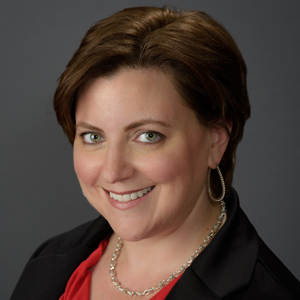
Amanda Grannas, PhD
Associate Vice Provost for Research; Professor, Chemistry, Villanova University
Dr. Amanda M. Grannas is Professor of Chemistry and Associate Vice Provost for Research. She completed her BS in chemistry and math at Juniata College in 1998 and obtained a PhD in analytical chemistry from Purdue University in 2002. Following her graduate work, she was a postdoctoral scholar at The Ohio State University with a joint appointment in the Department of Chemistry and the Department of Geological Sciences. Since joining the Villanova faculty in 2005, Dr. Grannas has established a thriving research group focused on environmental and atmospheric chemistry and has mentored over 40 research students.
She has a diverse range of expertise, and her recent projects include the study of snow and ice photochemistry, the fate of pharmaceutical and personal care products in local watersheds, and the development of advanced analytical techniques used to study ice cores. She is a prominent and internationally known expert in snow chemistry and has participated in a number of field studies in both the Canadian and Alaskan Arctic and has included a number of Villanova students in her fieldwork. Her research has been supported by the EPA, NSF, NOAA, and the Camille and Henry Dreyfus Foundation. Dr. Grannas’ previous honors include being awarded a prestigious Faculty Early Career Development Award from the National Science Foundation, and being one of seven faculty nationwide recognized in 2013 as a Henry Dreyfus Teacher-Scholar by the Camille and Henry Dreyfus Foundation.
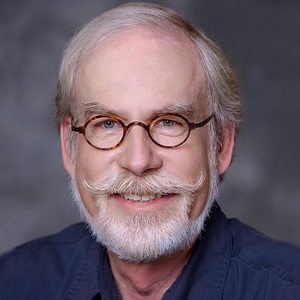
Gene Kritsky, PhD
Dean, School of Natural and Behavioral Sciences; Professor of Biology, Mount St. Joseph’s University
Dr. Gene Kritsky, a native of North Dakota, has been teaching at the college level for 39 years, lecturing on various disciplines including entomology, evolution, zoology, general biology, paleobiology, and the history of science. He earned his B.A. in Biology in 1974 from Indiana University, and his M.S. and Ph.D. in Entomology in 1976 and 1977 (respectively) from the University of Illinois. Dr. Kritsky was named a Fellow of the American Association for the Advancement of Science in 1996 and was a Fulbright Scholar to Egypt in 1981-2. He recently received the Distinguished Scholar Award from the Indiana Academy of Science. His research on periodical cicadas has attracted national attention, with appearances on the ABC Evening News, CBS Evening News, the Today Show, and CBS Sunday Morning. His research on the history of entomology has been featured in the pages of Nature, The New York Times, Washington Post, Science News, The Scientist, and several international publications. He has authored over 150 papers and 10 books. His most recent book, The Tears of Re: Beekeeping in Ancient Egypt, was published in 2015 by Oxford University Press. Dr. Kritsky is currently the Dean of the School of Behavioral and Natural Sciences and Professor of Biology at Mount St. Joseph University in Cincinnati, Ohio.
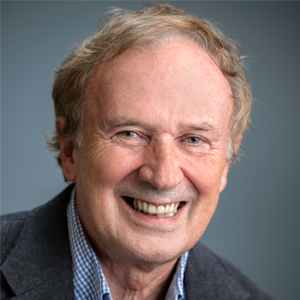
Edward Guinan, PhD
Professor, Astrophysics and Planetary Science, Villanova University
A professor of Astrophysics and Planetary Science at Villanova University where he teaches Meteorology, Astronomy, Astrobiology and Cosmology. His primary research interests include Stellar & Solar Astrophysics, Variable Stars (stellar pulsation and eclipsing binaries), Observational Cosmology, Astrobiology & Exobiology, Exoplanets, Planetary Habitability and searches for Exo-life. He utilizes ground-based and NASA/ESA space-mission data that currently include the Hubble Space Telescope (HST), Chandra X-ray Observatory, the XMM-Newton X-ray Observatory and SOFIA (Stratospheric Observatory for Infrared Astronomy). He has published over 600 papers and edited four books. His research has been supported primarily by grants from NASA and National Science Foundation. In 1982 he and Villanova colleague Frank Maloney found evidence of rings around the planet Neptune that were later were confirmed in 1989 by the Voyager Mission. Forty years ago he helped establish a modern astronomical observatory (Biruni Observatory) in Shiraz, Iran. Recently he worked with a European group to study the potential habitability of the nearest Earth-size exoplanet, Proxima b and found that this temperate planet has a chance to support life. For his efforts he has received the Villanova University Outstanding Faculty Research Award, Villanova University the Distinguished Alumni Award, and the Outstanding Mentoring & Teaching Award. In 2015 he also received the Alcott Medal for Distinguished Service from the American Association of Variable Star Observers. Over the last twenty years he also has helped organize or headed international education, research and outreach programs in developing countries sponsored by the International Astronomical Union (IAU). These include the International School for Young Astronomers (ISYA) and Teaching Astronomy for Development (TAD). Since 2012 he has been the Chair of the Astronomy for Universities and Research Program at the IAU Office for Astronomy for Development (IAU/OAD). As part of the mission of the OAD, “Astronomy for a better world”, he helped establish the African Astronomical Society (AfAS) and East Africa Astronomical Society. He also is an advocate for establishing colonies on Mars and developing interstellar travel programs to nearby stars hosted by planets. He is a founding member of StarVoyager Interstellar Program and on the advisory board of the Life Boat Foundation in establishing an off-Earth human presence on the Moon and Mars.

